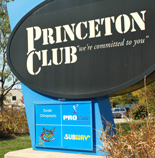Milwaukee Temporomandibular Joint (TMJ) Dysfunction Treatment
The Temporomandibular Joint (TMJ) or the jaw joint connects the lower jaw to the skull. This flexible joint is used more than any other joint in the body. It controls movement of the mouth and allows the jaw to open and close for talking, chewing and swallowing among other functions. When pain and dysfunction of facial structures occur, many of our daily and basic abilities can be affected.
Many people have pain and/or dysfunction in and around the jaw joint at some point during their lives. Since these joint and muscle problems are not completely understood, treatment is often complicated by stress, lack of a definitive diagnosis, chronic trauma and persistent postural changes.
Who is Affected by TMJ?
According to the American Dental Association (ADA), Temporomandibular Joint Dysfunction is most common in adults ages 20 to 50 and especially in women. As many as 65% to 85% of the population will develop TMJ problems at some point in their lives. In most cases these symptoms are mild and go away with time and treatment. Approximately 12% of TMJ problems become chronic and need ongoing care.
Common Symptoms of TMJ Dysfunction
- Inability to open the mouth wide to eat normally
- Inability to close the mouth completely
- Inability to eat hard or chewy foods
- Clicking or dislocation of one or both jaws
- Head, neck, jaw, ear, tooth and/or shoulder pain
- Locking of the jaw
These symptoms, if unresolved, can result in impaired concentration, difficulty sleeping, poor nutrition and psychological distress. If you are suffering from the symptoms listed above, ask your physician or dentist if you may be a good candidate for TMJ treatment.
Treatment Protocols
At PROCare Physical Therapy of Milwaukee, our therapists have developed a comprehensive program to evaluate and treat the direct areas affected by TMJ disorders including the head, neck, face and shoulders.
Our therapists work closely with each patient to determine the potential cause and address it appropriately
.
Depending upon the cause and the dysfunction, treatment may include:
- Postural alignment and positioning techniques
- Therapeutic Exercise
- Strengthening
- Stretching
- Relaxation
- Re-train breathing habits
- Correct negative patterns of movement
- Manual Therapy
- Intra-oral
- Extra-oral
- Head, neck, upper quarter
- Modalities
*You will have an active role in decreasing your symptoms, improving function and returning to a healthier lifestyle.
Temporomandibular Joint (TMJ) Disorders
"The Facts"
The successful treatment of TMJ disorders requires a dedicated team, including a dedicated patient. Your PROCare Physical Therapist will instruct you in carefully selected exercises. It is imperative that you perform your exercises faithfully each day to retrain your muscles. Just as heart patients modify their diets and exercise, you too must exercise and be watchful of your posture on a regular basis.
The exercises and instructions you receive in Physical Therapy play a major role in the effective management of TMJ. The patient must understand these concepts:
1. Avoid excess wear and tear of the TM joint.
Eliminate nail biting, chewing on pens, gum chewing, biting lips and inside of the cheek, etc.
Avoid crunchy, hard foods such as popcorn, nuts, taco chips, chewing ice or hard candy.
Avoid chewy food like caramels, chewy breads.
Take smaller bites and kiss smaller kisses.
Avoid leaning on your jaw.
Your TMJ is placed under much greater strain when your mouth is opened wide. Avoid opening wide for corn on the cob, submarine sandwiches or biting an apple. Place your tongue up behind two front teeth when yawning.
2. Learn the "rest position" of the TM Joint.
There is a strong relationship between clenching teeth and headaches. Some people unknowingly clench and grind their teeth, often in stressful situations. When the tip of the tongue is up against the roof of the mouth behind the 2 front teeth AND when the molars are slightly separated, the TMJ is under the least amount of strain. Interestingly enough, this happens naturally when a person stands up straight and breathes through the nose. (This is difficult to do if you are a mouth breather). Developing a good awareness of your jaw position and your overall posture can lessen head and neck pain.
3. Learn to sit and stand in good POSTURE:
Everyone knows poor posture can cause back and neck aches but guess what? Poor posture can create excess wear and tear on the TMJ too! Slumped shoulders commonly contribute to bad posture. Your Physical Therapist will show you exercises to help correct this. Stand with shoulders back, chest held high and eyes on the horizon. In addition, your Physical Therapist can show you tips for keeping good posture while at work, at home and at your job.
4. Pump your joints.
Your Physical Therapist will instruct you in a variety of exercises which are easy to do and require little, if any, special equipment. These exercises can be woven into your daily routine. "Doing a little bit of exercise often" will pump the joints and enhance their circulation. Good circulation reduces pain and promotes healing.
5. Be patient.
It truly takes months of faithful exercise to retrain and reprogram your muscles
Greenfield Clinic:
6520 W. Layton Ave.
Greenfield, WI 53220
Ph: 414.727.3345
Fax: 414.282.9348
7400 W. Rawson Ave., Ste 225
Franklin, WI 53132
Ph: 414.727.3345
Fax: 414.282.9348
(Inside of The Princeton Club)
*Opens early at 6:30 am!
14999 W. Beloit Rd., Ste B
New Berlin, WI 53151
Ph: 414.858.1361
Fax: 414.858.1370
Email: painfree@procarept.org
Office Hours:
Mon-Thur: 6:30am - 7:00pm
Friday: 6:30am - 6:00pm

Congratulations to PROCare Physical Therapy Staff for Their Recent Certification in Intramuscular Dry Needling! (CMTPT) David Tranchita, MA, PT, OCS, CMTPT, CSCS; Brain Bedalov, MSPT, CMTPT; and Abigail Jurinek, DPT, CMTPT recently completed their Certification in Intramuscular Dry Needling. They represent 3 of the only 70 physical therapists in Wisconsin, and 3 of 150 physical therapists in the United States who have this certification. Dave, Brian and Abigail have already had significant training in Intramuscular Dry Needling. and this recent class and exam was the final step in their certification process. Dry Needling is an extremely effective pain management treatment tool, particularly for those patients with consistent pain, or those not progressing as rapidly with other types of treatments.
NEW BERLIN LOCATION Visit us in NEW BERLIN at: 14999 W. Beloit Road,Ste B at the PRINCETON CLUB-New Berlin
Suffered a Work Related Injury? Congrats to our Physical Therapist, Shaun Powers MPT, CWCHP, Shaun is now a Certified Workers Compensation HealthCare Professional. Through this certification, Shaun has been able to expand his knowledge and expertise on how to best treat work related injuries. Please join us in CONGRATULATING SHAUN!
PROCare Physical Therapy Offers FREE Pain Assessments By Walk-In or Appointment! To Set Up Your FREE Pain Assessment Call 414-858-1361 or Stop By the Nearest Clinic to You ----------------------------------- Our PROCare Physical Therapy Franklin Clinic is Located in Franklin Orthopedics and Sports Medicine, to learn more about their practice visit: |



